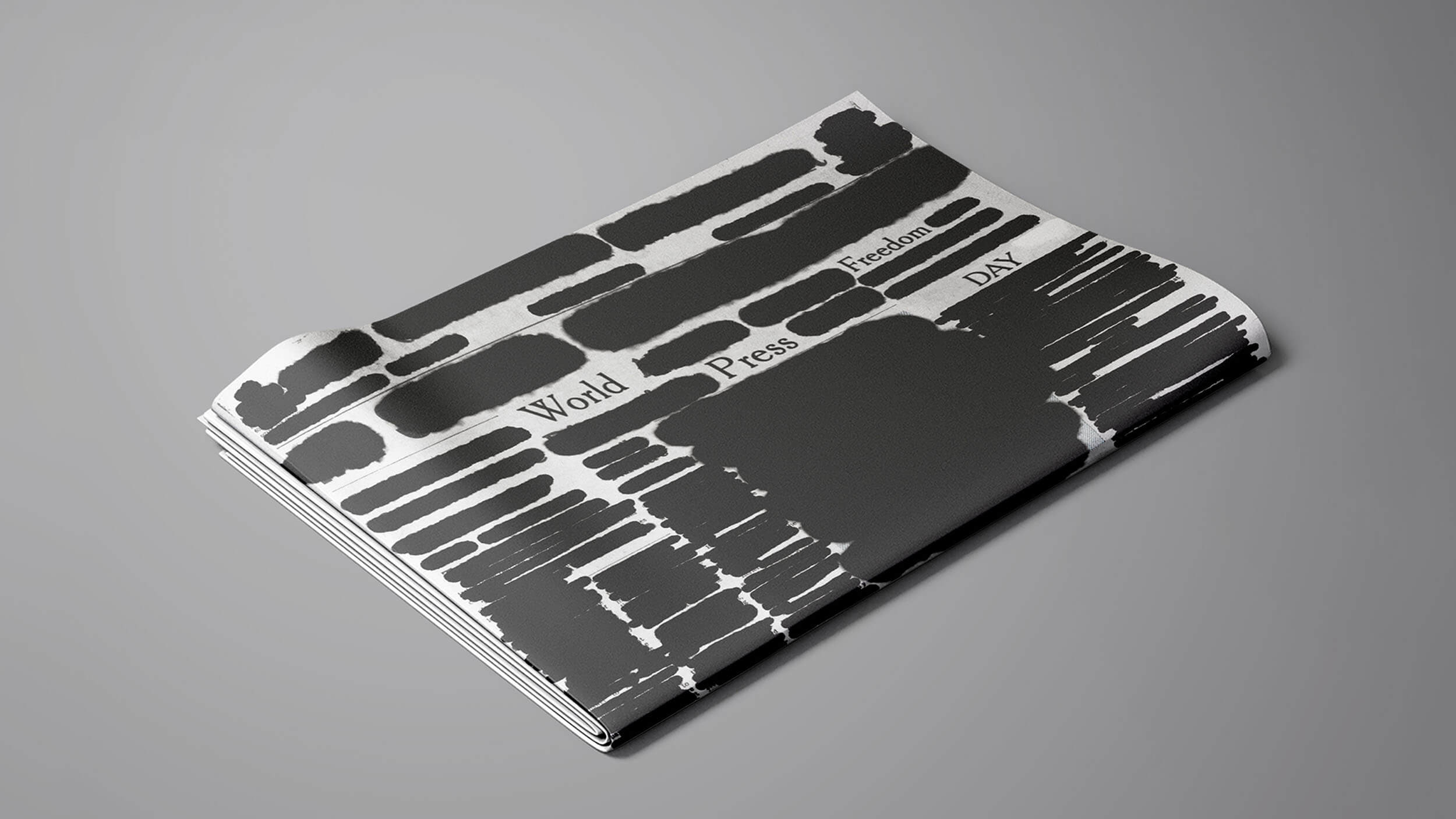By Julia Virnelli, Communications intern
Journalists act as the eyes and ears of the people, providing citizens with a free flow of information. A free press is vital to the health of an open society — and a severe threat to a closed one.
World Press Freedom Day, founded at the 26th session of the UNESCO General Conference, serves as a reminder that a free press is the cornerstone of democracy. So important is it to the health of a country, so essential to freedom and truth and justice, it’s necessary to examine what authoritarian regimes are doing to eliminate it.
Between 2016 and 2020, 400 journalists were killed doing their jobs. A record number are behind bars at 533 (and counting). And 49 are reportedly missing.
As press freedom declines at an alarming rate across the globe, authoritarian regimes are increasingly taking control of media outlets to silence criticism, push their agendas, and legitimize their rule. Without a way to report on, and expose, corruption, these regimes will only grow stronger.
Journalists in Iraq are attacked, kidnapped, and killed for their work. Between 1992 and 2023, 283 journalists and media workers were killed. The Iraqi constitution claims to protect the freedom of speech, but new laws and practices around the country constantly contradict this. The 1968 Publications Law states that journalists can serve up to seven years behind bars for insulting the government; and the 1969 penal code prohibits actions such as publishing information relating to government establishments, false information, and defamation.
Last year, Iraqi journalist Ayub Ali Warty was charged and convicted of defamation under Article 434 of the Iraqi penal code for his reporting in the Iraqi Kurdish capital of Erbil.
In 2022, another Iraqi journalist, Sartip Qashqayi, was arrested under Article 2 of the Iraqi penal code, for “misuse of communications devices,” after publishing a report on Awat Sheik Janab, the Kurdistan region’s finance and economy minister.
Despite potential efforts to curb media censorship through the 2011 Journalist Protection Law, press freedom continues to be violated.
The law claims to promote the rights of journalists by ensuring their ability to collect information, keep sources confidential, and prevent journalists from being questioned for the opinions or information they publish, unless their actions are unlawful. In reality, this law is too vague to offer journalists any real protection.
Just look at the actions of the Turkmenistan regime, which has outlawed political dissent and actively punishes journalists critical of the government. Asghgabat controls all major media outlets in the country and heavily restricts Internet access. The government must also approve all reports before being published or broadcast. This means the news the public is consuming is just more pro-government propaganda.
In 2020, Turkmen journalist Nurgeldi Halykov was sentenced to four years in prison on fraud charges for sharing photographs of a World Health Organization delegation. Independent journalist Solton Achilova faces physical and verbal harassment, as well as death threats, for her work. The families of journalists are often targeted and harassed in an attempt to squelch journalists’ voices.
Iraq and Turkmenistan are just two examples of too many countries violating press freedom and punishing journalists. In the last five years, over 85% of people across the globe have suffered a decrease of press freedom in their country. In Reporters Without Border’s 2022 World Press Freedom Index, 28 countries were deemed high risk of press censorship — a record high.
Authoritarian regimes are threatened by a free press. After all, it’s the journalist’s job to expose precisely what a regime tries to cover up.
HRF stands with these journalists in their struggle for truth and freedom.
Julia Virnelli is a communications intern with the Human Rights Foundation.
